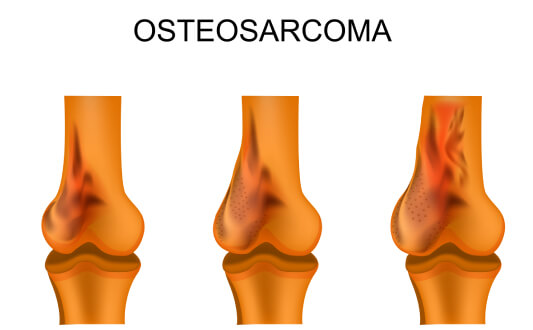Medical Blog About Treatment Abroad
Welcome to our medical blog – it is dedicated to empowering patients with knowledge about global healthcare! We created this platform with the intention to bridge the gap between patients and the medical innovations available globally.
What's Inside: Discover new and rare methods in oncology, immunology, heart surgery, neurosurgery, and other medical fields! Our health travel insights show how medical journeys open new possibilities with advanced treatments unavailable locally, including specialized cancer care abroad.
Who Benefits: This resource is for patients and their families who seek new treatment methods and explore options at leading international hospitals. Those who want to make informed healthcare decisions beyond borders.
Why Read: Booking Health experts provide verified information through patient-friendly articles – they translate complex medical advances into accessible info. Stay current with the latest developments in global healthcare and discover how international medicine can transform treatment outcomes!
Browse our latest articles and take the first step toward better health outcomes!
Treatment - page 9
 Dendritic Cell Therapy for Melanoma Treatment in Germany
Dendritic Cell Therapy for Melanoma Treatment in Germany
Melanoma is one of the most aggressive forms of skin cancer, responsible for the majority of skin cancer-related deaths despite accounting for only a small percentage of skin cancer cases. According to the World Health Organization, more than 325,000 new cases of melanoma were diagnosed globally in 2020, and over 57,000 people...
 Dendritic Cell Treatment for Autoimmune Diseases
Dendritic Cell Treatment for Autoimmune Diseases
Autoimmune diseases are a group of chronic disorders in which the immune system mistakenly attacks the body's own healthy cells and tissues. This immune misfiring leads to persistent inflammation, organ damage, and systemic complications. There are over 80 recognized autoimmune diseases, including rheumatoid arthritis, multiple...
 Actinium-225 PSMA Therapy: Revolutionizing Treatment for Metastatic Prostate Cancer
Actinium-225 PSMA Therapy: Revolutionizing Treatment for Metastatic Prostate Cancer
Prostate cancer remains the most widespread oncological pathology among men and a leading cause of cancer death worldwide. According to epidemiological data, PCa is the most frequently diagnosed cancer among men in more than half of the countries in the world (112 of 185 countries/territories), with an estimated 1.4 million new...
 Osteosarcoma Treatment with Dendritic Cells in Germany
Osteosarcoma Treatment with Dendritic Cells in Germany
Osteosarcoma tumors are a rare but aggressive form of bone cancer, most commonly affecting adolescents and young adults. In Germany, approximately 60 children and adolescents under 18 are diagnosed with osteosarcoma each year, accounting for about 2.6% of all pediatric malignancies in this age group. This cancer typically...
 Treatment of stage 4 breast cancer in Germany
Treatment of stage 4 breast cancer in Germany
Breast cancer (BCa) affects more than 2 million women each year, and approximately 10 percent of the cases are diagnosed with stage 4 and metastases. German hospitals are the best providers of cancer treatment, as the most effective ones due to the combination of innovative technology with holistic treatment of the patient.
 Treatment of soft tissue sarcoma with dendritic cells
Treatment of soft tissue sarcoma with dendritic cells
Soft tissue sarcomas are rare malignant tumors that develop in muscles, fat, cartilage, blood vessels, and other non-epithelial tissues throughout the body. With approximately 13,520 new cases expected in the United States in 2025, these cancers represent less than 1% of all cancer diagnoses. While advanced sarcomas differ...
 Revolutionary Immunotherapy Treatments for Prostate Cancer in Germany
Revolutionary Immunotherapy Treatments for Prostate Cancer in Germany
Prostate cancer immunotherapy represents a breakthrough in cancer treatment that's showing remarkable results across various disease stages. Immunotherapy works where other treatments have failed and can no longer stop cancer progression. While traditionally considered for advanced cases, recent clinical evidence demonstrates...
 Treatment of stage 4 pancreatic cancer in Germany
Treatment of stage 4 pancreatic cancer in Germany
Pancreatic cancer (ICD C25) is one of the most common gastrointestinal cancers. More than 300,000 new cases are diagnosed in the world every year. This tumor accounts for 3% of all cancers, which is a fairly high figure. The treatment methods offered in Germany allow for achieving excellent results, even at stage 4 of the pathology.

